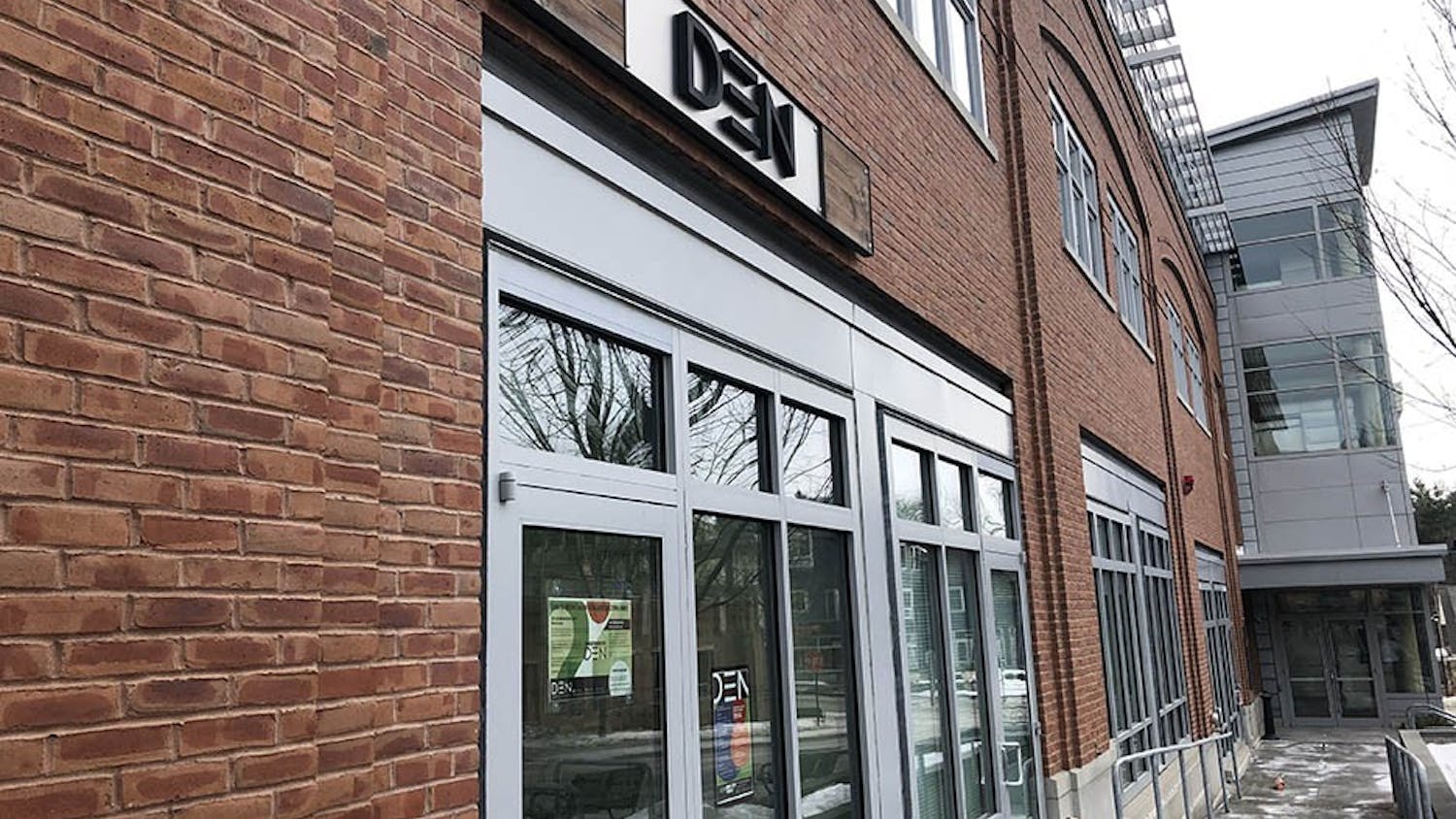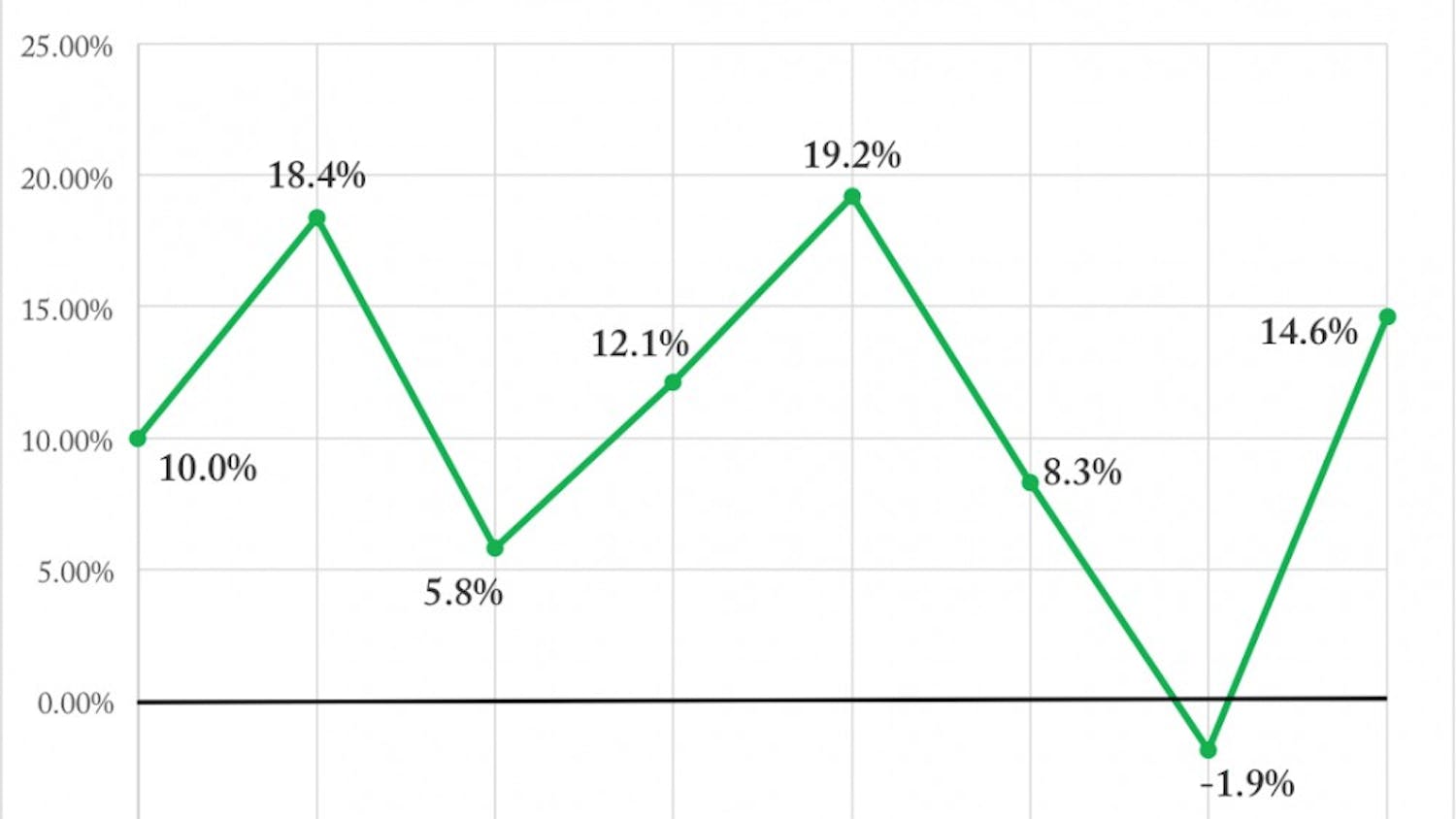Over the past five years, Green D Ventures has afforded many Dartmouth alumni the opportunity to enter the venture capital market with a Big Green twist, putting forth capital to support emerging companies largely associated with Dartmouth alumni.
Green D Ventures managing partner Laura Rippy ’89 said the firm was founded by Mike Collins ’86 to “democratize” access to venture capital — an asset class historically limited largely to institutional investors. The firm, which according to its website takes investments of $50,000 to $1 million, requires that investors be accredited, meaning they have either a net worth of over $1 million or $200,000 in sustained annual income.
Rippy said that the vast majority of investors in the firm are Dartmouth alumni, and two-thirds of emerging companies in the firm’s portfolio have a clear Dartmouth alumni connection.
“VC firms normally raise funding from endowments, pension funds and insurance companies and the like,” Rippy said. “Mike Collins started Green D Ventures to give access to this venture capital asset class to the average accredited investor.”
Rippy said much of the passion at Green D Ventures surrounds supporting emerging entrepreneurs.
“We are starting the next great thing,” Rippy said. “The amazing innovations of the last few decades have come about through venture capital.”
Gordon Phillips, a business administration professor and faculty director of the Center for Private Equity and Venture Capital at the Tuck School of Business, said a venture capital firm typically consists of a number of partners or investors who gather money from institutions or individuals to invest in young companies that have very high growth prospects.
“Investors can see the potential for high returns and also they can see that public markets have become more and more competitive,” Phillips said. “Going into the private market has a potential for high return. It is very risky, but a large part of the risk when part of a broader portfolio is diversifiable.”
According to Rippy, Green D Ventures offers an affinity-based model — a unique angle from which to approach the competitive industry. She said that model has also been successful in other school ecosystems, including Harvard University, the Massachusetts Institute of Technology and Yale University. All of these funds, based on Green D Ventures’ model, are now under the umbrella Alumni Ventures Group, which Rippy said boasts some 400 portfolio companies and over 100 staffers under Collins’ leadership.
Rippy said that in her role as managing partner, she vets prospective investments, and added that she has spoken with thousands of Dartmouth alumni entrepreneurs alongside her two leadership partners.
“We learn about their story, what they are creating,” Rippy said. “A lot of Dartmouth alums have succeeded in the venture capital industry. We cultivate the relationships there.”
Rippy said that her work includes connecting the dots for companies in Green D Ventures’ portfolio using Dartmouth alumni connections in order to help them grow, and that stitching together such relationships is part of the unique nature of the Green D Ventures model.
“In contrast to traditional VC’s — which sit on boards, lead the rounds and negotiate terms — we bring this community of engaged alums who are excited about helping the company succeed,” Rippy said.
Phillips pointed out that venture capital can prove a risky investment, which is part of the reason that it remained within the purview of institutional investors comfortable with the risk and illiquidity for years. Most venture capital investments, he said, are contractually bound to around 10 years before withdrawal, and returns are never guaranteed.
However, he said diversification can help investors evade inherent risks, a sentiment which Rippy echoed.
Rippy said Green D Ventures and other funds in the Alumni Ventures Group help mitigate risk through intentional diversification “by stage, sector and geography.”
“The intent is that our investors get a mix of industry exposure,” Rippy said.
According to Rippy, the other key component of attempting to mitigate risk is Green D Ventures’ policy of acting as a follower to another top-tier venture capital firm.
Rippy said Green D Ventures follows a top performing venture capital firm into the investment round, acting as a “follower” investor that can bring Dartmouth connections while the principal venture capital firms assume board positions and other roles.
Green D Ventures offers internship and fellowship opportunities.
“[Our fellows program] was designed to be an on-ramp that helps address the inequalities in venture capital,” Rippy said. “If you look at the mix of participants, it is basically 50-percent female and a high percentage of persons of color. The venture industry is not that way. We have graduated hundreds of folks through the venture fellow program and they are now taking their journey into the venture, financial and startup worlds.”
One such Venture Fellow is Kimmy Paluch ’04, founder and managing director of Beta Boom, a firm which she said serves as a startup academy and pre-seed fund that invests in underestimated founders. Paluch said the fellowship program allowed her to gain experience in the venture capital world.
“My experience emboldened me: I realized there is a lot I can bring to the table as an investor because of my experience in early-product development,” Paluch said. “It gave me the tools that I needed. I saw how you evaluate companies and compare them to others in the landscape.”
According to Paluch, part of this company evaluation included filling out due diligence reports to paint a detailed picture of prospective investments for the committee.
“You talk to customers, founders and other market experts to understand if it’s a sound deal, where the gaps are and whether or not they are surmountable,” Paluch said. “The report helps inform the investors’ decision.”
Rippy said that it is too early to comment on Green D Ventures’ returns, which is private information. She said most venture capital returns happen after seven to 10 years. She said results come at the end, and after putting the money to work, it requires patience.
“The beautiful thing about venture capital is that the managers’ incentives are completely aligned with the investors’,” Rippy said. “We all want the really big returns and we’re all rowing in the same direction.”



